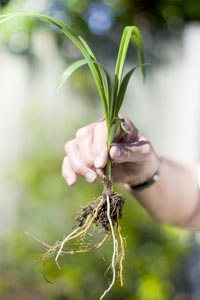
- The TRUTH About America's Water
- Water Pollutants that Cause Illness
- Are Minerals in Water Important for Health?
- Top 5 Drinking Water Contaminants
- Do I Need a Whole House Water Filter?
WHAT CAN I DO INDIVIDUALLY TO PREVENT WATER POLLUTION?
With all the talk swirling around us about the changing environment; global warming, rising tides, melting ice-bergs and ozone holes, you may think there is nothing you can do to help keep your environment safe. But believe it or not, you can help one area of your environment immediately. Your water supply.

You can start by avoid using hazardous household products--Most proprietary household chemicals are safe to use and are environmentally friendly when used according to the directions on the package. However, some have a harmful cumulative effect on the environment when they are over-used or incorrectly disposed of. Buy only those environmentally hazardous products you really need, and buy them in quantities you will be able to completely use up so that you will not have to worry about disposing of the leftovers later.
Don't misuse your household's sewage system. If you do not want toxic chemicals in household products harming the environment and even coming back to you in your water or your food, dispose of them properly.
- Always try to use completely, or to recycle to other people, all of the contents of such products as oven cleaners, toilet bowl cleaners, sink drain cleaners, bleaches, rust removers, and most other acidic and alkali products. This also includes paints, solvents, carpet and furniture cleaners, polishes, and glues.
- Such items as disposable diapers, dental floss, plastic tampon holders, and hair can create many problems in the sewage treatment plant; they should all be tossed into the wastebasket, not the toilet.
- Your local fire department will normally accept unwanted leftovers of barbecue starter fluids, lighter fluids, gasoline, and furnace oils. Where possible, choose latex (water-based) paint instead of oil-based paint. Use it up instead of storing or dumping it.
Avoid the use of pesticides and hazardous materials in your garden and yard--Some pesticides and hazardous materials tend to accumulate in the groundwater and food chain and are toxic to various forms of life, particularly when they are not used according to the directions specified on the package or when the empty containers are disposed of without proper precautions. If over used or applied at inappropriate times some of these chemicals may also be lost in storm water runoff.
- Reduce or avoid the use of pesticides to control household or garden pests by employing more environmentally responsible methods such as
- pulling weeds by hand;
- pulling off and disposing of infested leaves;
- picking off larvae;
- using an insecticide soap solution to dislodge or suffocate insects, or dislodging them using stream of water from a garden hose;
- rotating garden crops each year to prevent depletion of soil nutrients and to control soil-borne diseases;
- cultivating your garden. Regular hoeing will control weeds and keep plants healthy and more resistant to insects.
- Use natural fertilizers such as bonemeal or compost.
- Spread sand rather than salt on your sidewalks and driveways to get traction on winter ice.





